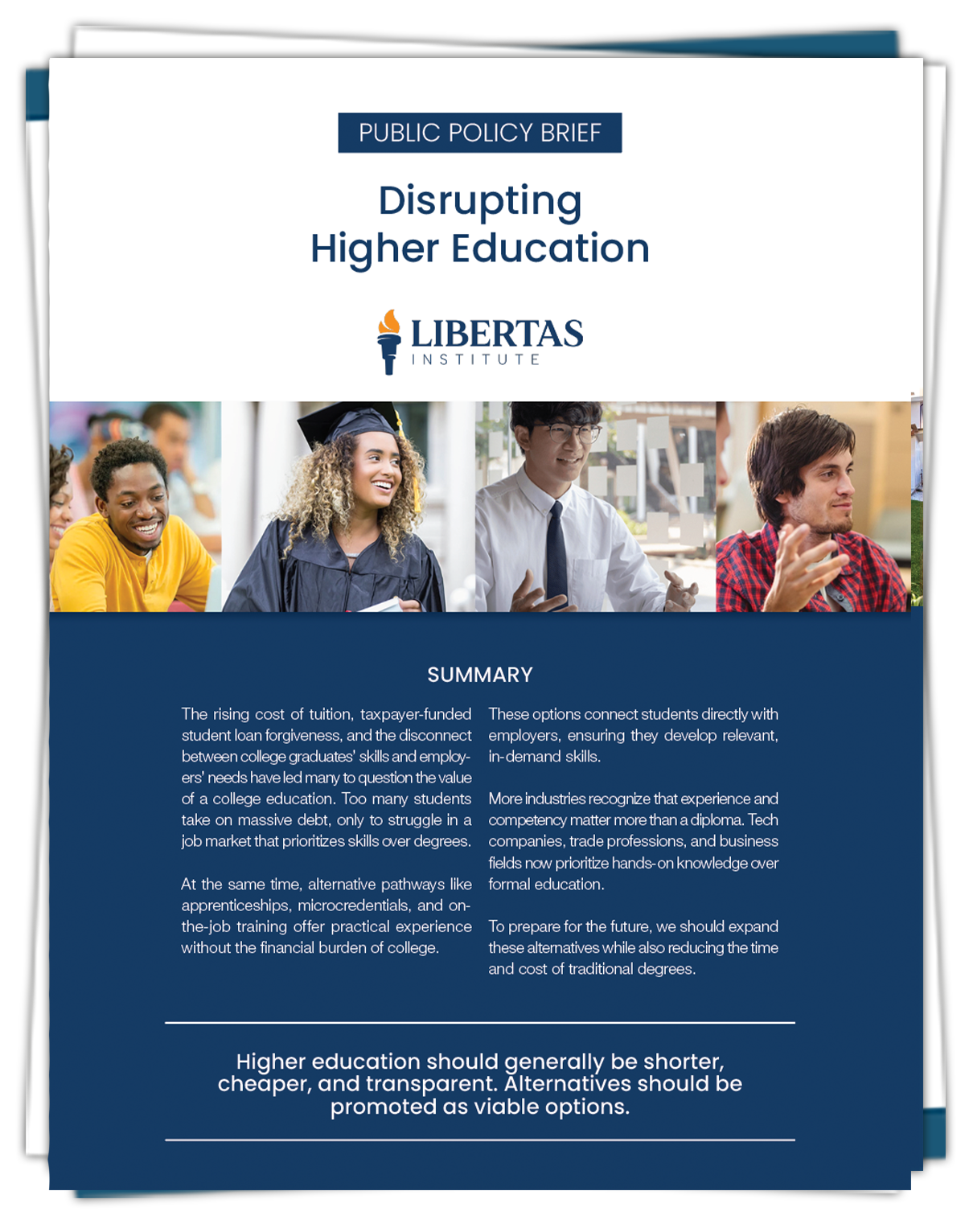Authored by Jon England, Education Policy Analyst at Libertas Institute
The rising cost of tuition, taxpayer-funded student loan forgiveness, and the disconnect between college graduates’ skills and employers’ needs have led many to question the value of a college education. Too many students take on massive debt, only to struggle in a job market that prioritizes skills over degrees.
At the same time, alternative pathways like apprenticeships, microcredentials, and on-the-job training offer practical experience without the financial burden of college. These options connect students directly with employers, ensuring they develop relevant, in-demand skills.
More industries recognize that experience and competency matter more than a diploma. Tech companies, trade professions, and business fields now prioritize hands-on knowledge over formal education. To prepare for the future, we should expand these alternatives while also reducing the time and cost of traditional degrees.





